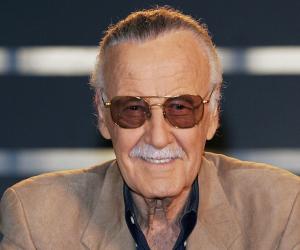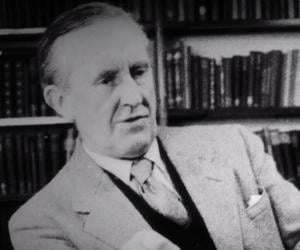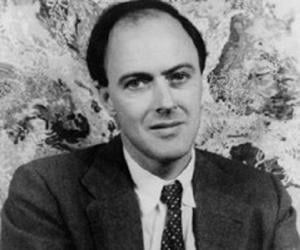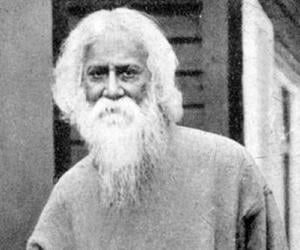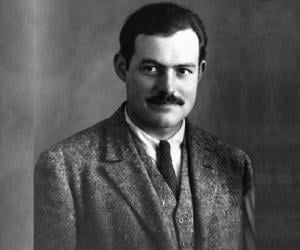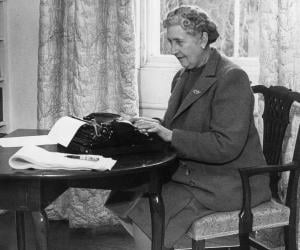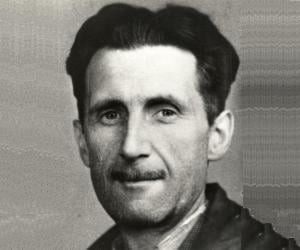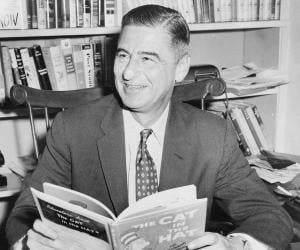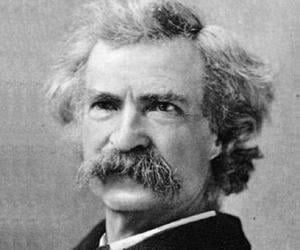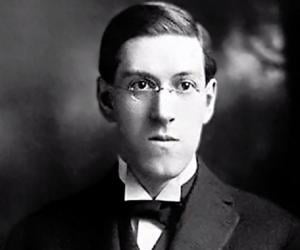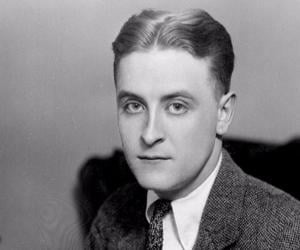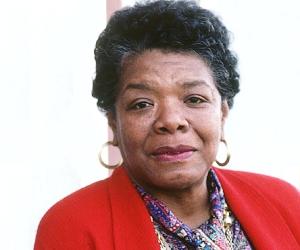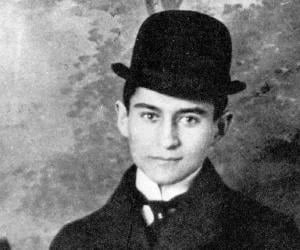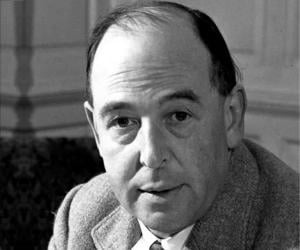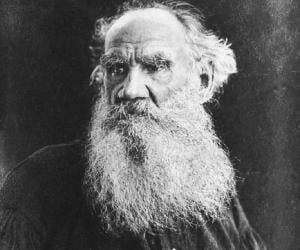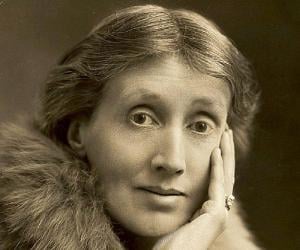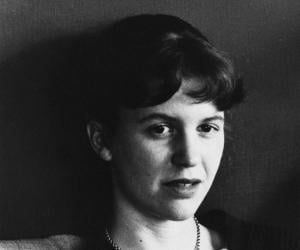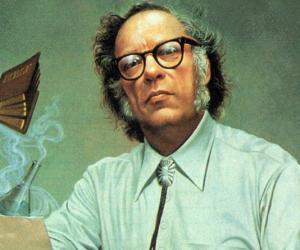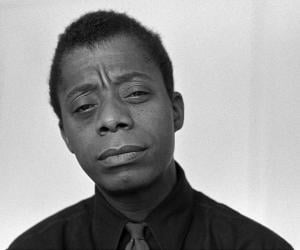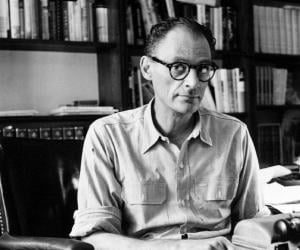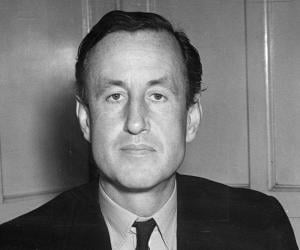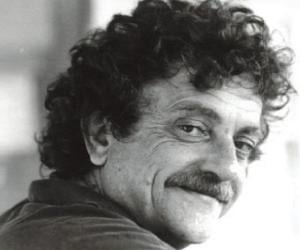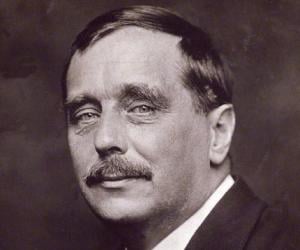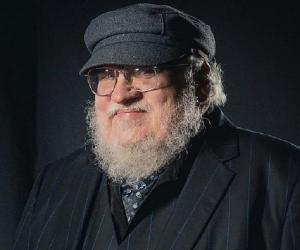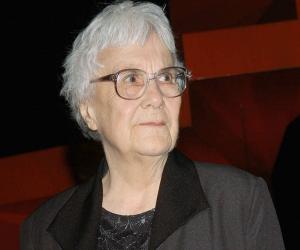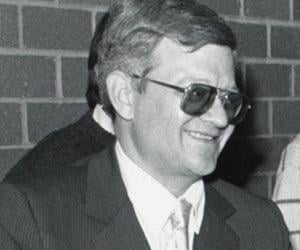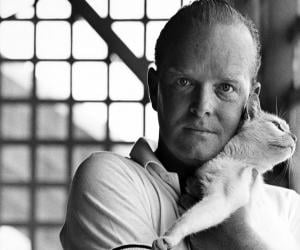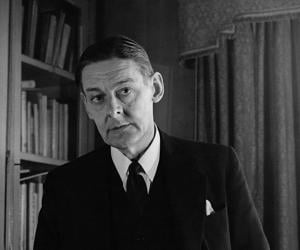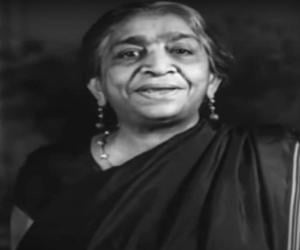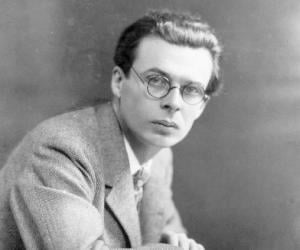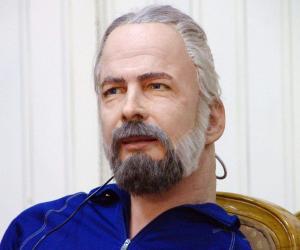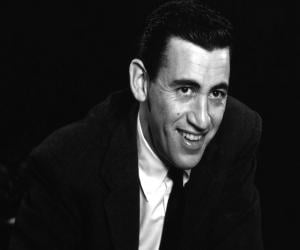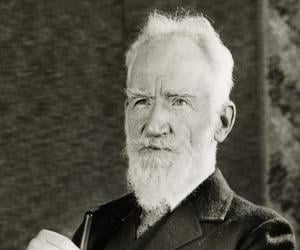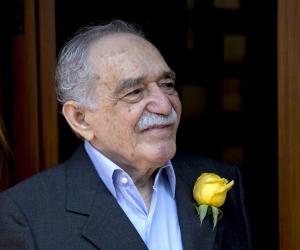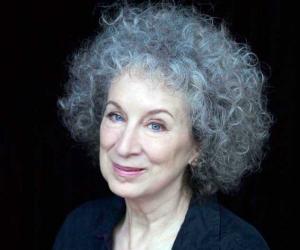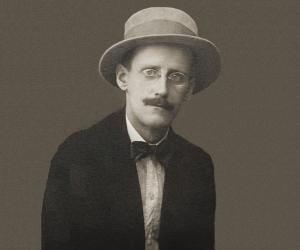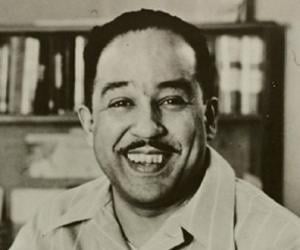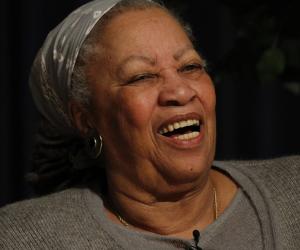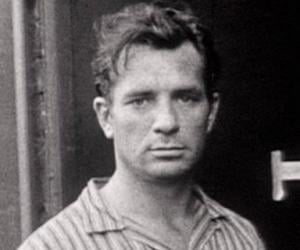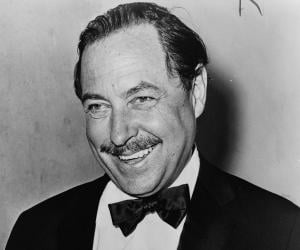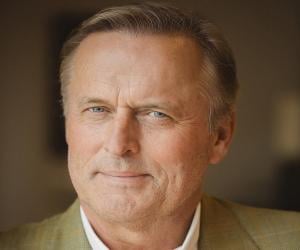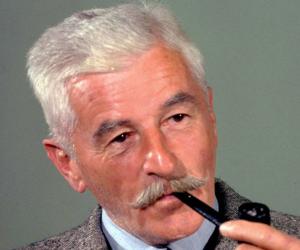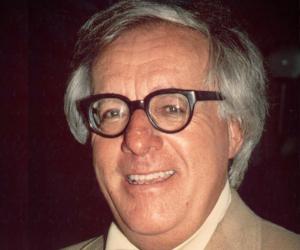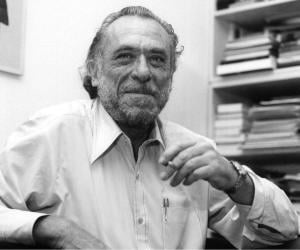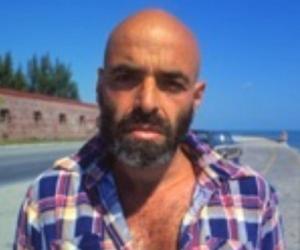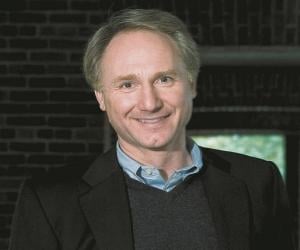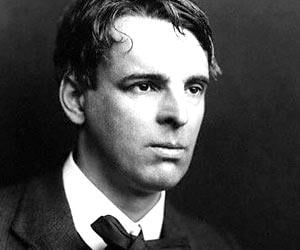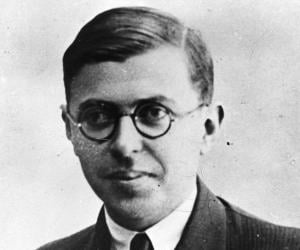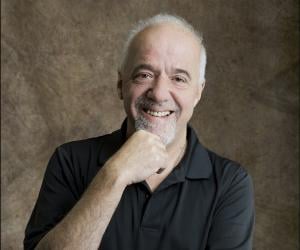Stan Lee was one of the most popular comic book writers, thanks to his appearances in several Marvel movies. He is well-known as the co-creator of many famous superheroes, including Iron Man, Spider-Man, and the Hulk. He pioneered a naturalistic method to writing superhero comics and challenged the Comics Code Authority, which ultimately led to changes in its policies.
Considered one of the greatest authors, JRR Tolkien is popularly called the father of the modern fantasy literature. He is best known for his high fantasy classic works The Hobbit and The Lord of the Rings, which is set in a conceived world called the Middle-Earth. Many years after his death, Tolkien continues to be one of the best-selling writers.
British writer, Roald Dahl, is considered as one of the greatest children’s authors. He is one of the best-selling authors of all-time and had a career spanning decades. Charlie and the Chocolate Factory, James and the Giant Peach, The Witches, The Twits and Matilda are some of his classic works. He also wrote short stories and novels meant for adults.
Rabindranath Tagore was an Indian polymath who contributed greatly to the fields of literature, art, and philosophy. Referred to as the Bard of Bengal, Tagore is credited with reshaping Bengali literature and music. The first non-European to receive the Nobel Prize in Literature, Tagore is also credited with composing the national anthems of India and Bangladesh.
Ernest Hemingway was an American novelist and short-story writer who had a strong impact on 20th-century fiction. He published seven novels and six short-story collections and won the Nobel Prize in Literature in 1954. A Farewell to Arms, For Whom the Bell Tolls and The Old Man and the Sea are some of his classic works. He ended his own life in July 1961.
Even after four decades after her death, Agatha Christie remains an influential figure in the world of literature and entertainment as most of her books continue to serve as inspiration to films, TV series, and video games. With over two billion copies of her novels sold, she holds the Guinness World Records for best-selling fiction writer of all time.
The king of dystopia and satire, George Orwell, the pen name adopted by Eric Arthur Blair, was a well-known novelist and critic of the 20th century. A man with a strong mind of his own, Orwell never backed down from stating his views on the socio-political climate he lived in, which he expressed profusely through his influential essays and novels.
Dr. Seuss was an American children's author, illustrator, and political cartoonist. He is credited with writing some of the most famous children's books ever, including The Cat in the Hat. His works were translated into over 20 languages and sold more than 600 million copies by the time of his death. Many of his creations were adapted into animated cartoons.
Mark Twain, “the father of American literature,” was one of the world’s greatest 19-th century humorists and authors. His novels The Adventures of Tom Sawyer and the Adventures of Huckleberry Finn were drawn from his childhood experiences in Missouri. In his later life, he sunk into bankruptcy and also recovered.
HP Lovecraft was a writer of weird and horror fiction and is known for his creation of Cthulhu Mythos, which has inspired a large body of games and music. His stories focused on his interpretation of humanity's place in the universe. He was virtually unknown during his lifetime, but is now considered a significant 20th-century author of supernatural horror fiction.
Novelist, essayist, screenwriter, and short-story writer F. Scott Fitzgerald is widely regarded as one of the greatest American writers of the 20th century. However, he wasn’t much popular during his lifetime. His works gained international acclaim only in the years following his untimely death at 44. Many of his works have been adapted into films.
Considered one of the major authors of the 20th century, Franz Kafka was a Bohemian short-story writer and novelist. Franz Kafka is credited for being one of the earliest German-speaking authors to explore themes like absurdity, existential anxiety, and alienation. The term Kafkaesque is now widely used in the English language to explain those situations experienced by his characters.
C. S. Lewis was a British writer whose books have sold millions of copies worldwide after having been translated into over 30 languages. His works, such as The Chronicles of Narnia, have inspired the works of other famous authors. Lewis' work continues to attract readership and he was ranked 11th on The Times' 50 greatest British writers since 1945 list.
Russian writer, Leo Tolstoy, is widely considered as one of the greatest authors ever. After experiencing a profound moral crisis in the 1870s, Tolstoy went through a phase of spiritual awakening, which had a great impact on his subsequent works that incorporated ideas on nonviolent resistance. These works influenced personalities like Mahatma Gandhi, thereby effectively changing the course of history.
Virginia Woolf was an English writer who pioneered a narrative mode called stream of consciousness to describe the thoughts and feelings of the narrator. Regarded as one of the most prominent modernist 20th-century writers, Woolf's works have gained much attention for inspiring feminism. Her life and work have inspired several films, novels, and plays.
Sylvia Plath was an American short-story writer, novelist, and poet. Plath is credited with popularizing confessional poetry and won a posthumous Pulitzer Prize in Poetry. Sylvia Plath achieved popularity and critical acclaim despite suffering from clinical depression for the most part of her adult life. Her story inspired the 2003 film Sylvia in which she was portrayed by Gwyneth Paltrow.
Isaac Asimov was an American writer. Best known for his science fiction works, Asimov was regarded as one of the Big Three writers along with Arthur C. Clarke and Robert A. Heinlein. Asimov is credited with influencing most sci-fi writers since the 1950s. Nobel Prize winner Paul Krugman stated that one of Asimov's works inspired him to take up Economics.
Amongst the greatest writers of the 20th century and a leading literary voice in the civil rights movement, James Baldwin extensively explored issues like race, sexuality and humanity in his work. His best known work include his debut novel Go Tell It on the Mountain and his books of essays Notes of a Native Son and Nobody Knows My Name.
Arthur Miller was an American essayist and playwright. Miller is credited with creating popular plays, such as Death of a Salesman, which is widely regarded as one of the best American plays of the 20th century. Thanks to his illustrious career, which spanned more than 70 years, Arthur Miller is regarded as one of the 20th century's greatest dramatists.
Ian Fleming was a British writer, naval intelligence officer, and journalist. Fleming is credited with creating one of the most popular characters of all time, James Bond. His James Bond series of novels have sold more than 100 million copies, making them one of the best-selling fictional book series in history. Jamaica’s Ian Fleming International Airport is named after him.
Robert Frost was an American poet. An influential poet, Frost was honored with four Pulitzer Prizes for Poetry, the only poet to receive four such awards. One of America's public literary figures, Robert Frost received the Congressional Gold Medal in 1960. His works influenced other poets like Robert Francis, James Wright, Edward Thomas, Richard Wilbur, and Seamus Heaney.
Science-fiction author Kurt Vonnegut is best remembered for the novel Slaughterhouse-Five, which became a New York Times bestseller. The Hugo Award-winner had also fought against the Germans in World War II and expressed his anti-war and atheist views through his works, which also include short stories, plays, and autobiographical works.
H. G. Wells was an English writer. Although he was prolific in many genres, he is best remembered for his work on sci-fi novels, for which he is often referred to as the father of science fiction. His 1901 novel The First Men in the Moon became so influential that a lunar impact crater is named after him.
Harper Lee was an American novelist who wrote the Pulitzer Prize-winning classic To Kill a Mockingbird. Despite publishing only two books, Lee was honored with the Presidential Medal of Freedom for her contribution to literature, such was her impact in the world of literature. A friend of Truman Capote, Lee has been portrayed by popular actresses in Capote's biographical films.
Sarojini Naidu was an Indian poet and political activist. An important figure in the Indian Independence Movement, she was a proponent of anti-imperialistic ideas, women's rights, and civil rights. Her illustrious career as a poet earned her the nickname Nightingale of India. After India became independent, she became the first woman to hold the office of Governor in the Dominion of India.
English writer and philosopher Aldous Huxley wrote countless books, including novels, short stories, non-fiction, and poems. He is best remembered for his science-fiction novels Brave New World and Island. The seven-time Nobel Prize nominee was also a Companion of Literature of the Royal Society of Literature and a Vedanta believer.
Philip K. Dick was an American writer who was known for his work that explores varied social and philosophical themes. Dick's novels have inspired films like Blade Runner, Total Recall, Minority Report, and The Adjustment Bureau. In 2005, his novel Ubik was included in Time magazine's list of 100 greatest novels published in English since 1923.
Nobel Prize-winning playwright and author George Bernard Shaw was best known for his realism and his support for women’s rights and socialism. His ideas gave rise to the word “Shavian.” His drama Pygmalion inspired the musical My Fair Lady. His other notable works include Candida and Man and Superman.
Nobel Prize-winning Colombian author Gabriel Garcia Marquez, also known as “Gabo,” is remembered as one of the most prominent figures of the magic realism literary style. His novels One Hundred Years of Solitude and Love in the Time of Cholera have achieved cult status. He previously worked as a journalist.
Margaret Atwood is a Canadian poet and novelist. Her works encompass themes, such as religion and myth, climate change, and gender and identity. An award-winning writer, many of Atwood's works have been made into films and television series; her work, The Handmaid's Tale, has had several adaptations. Perhaps, Margaret Atwood's most important contribution is her invention of the LongPen device.
James Joyce was an Irish novelist, poet, teacher, short story writer, and literary critic. Widely considered one of the 20th century's most important and influential writers, James Joyce contributed immensely to the modernist avant-garde movement. Joyce's work has influenced several scholars and writers, such as Jorge Luis Borges, Salman Rushdie, Seán Ó Ríordáin, Flann O'Brien, John Updike, and Cormac McCarthy.
Langston Hughes is best remembered as a prominent leader of the Harlem Renaissance. He was one of the first to write jazz poetry. He also wrote plays and short stories. He was a columnist for The Chicago Defender and wrote the iconic poem The Negro Speaks of Rivers.
German-American poet and short story writer ,Charles Bukowski, addressed the ordinary lives of poor Americans in most of his works. Since his death, he has been the subject of many critical books and articles. His stories have inspired several films like Tales of Ordinary Madness, Crazy Love, and Factotum.
Shel Silverstein was an American writer, playwright, songwriter, and cartoonist. Renowned for his children's books, songs, and cartoons, Silverstein's works have been translated into over 30 languages. The recipient of many prestigious awards, such as Grammy Awards, Shel Silverstein was posthumously inducted into the Chicago Literary Hall of Fame.
Dan Brown is an American author best known for writing a series of Robert Langdon novels; three such novels, namely The Da Vinci Code, Angels & Demons, and Inferno, have been made into films, with Tom Hanks portraying Robert Langdon in all three movies. Also known for his charity work, Dan Brown donates money to several charitable causes.
Jean-Paul Sartre was a French philosopher, writer, literary critic, and political activist. One of the most important personalities in the philosophy of phenomenology and existentialism, Sartre played a crucial role in 20th-century French philosophy. His work continues to influence literary studies, post-colonial theory, sociology, and critical theory. He was honored with the 1964 Nobel Prize in Literature.
Brazilian novelist Paulo Coelho is best known for his iconic novel The Alchemist, which has been translated into about 70 languages. He was once sent to a mental institution by his parents for not following the usual career path. He dropped out of law school and became a hippie later.
